|
“May the words of my mouth and the meditation of our hearts be acceptable to you, O Lord, my rock and my redeemer.” (Ps 19:14) I am really fortunate around Christmas because I only have to buy one present. I am not a good shopper. Sharon takes care of choosing all the gifts we need to give. Sometimes she’ll ask my opinion about option one or two, but if I choose incorrectly, I quickly pick up the signal and change my mind. So the only gift I need to buy, is for Sharon. I know a lot of you are not big winter snow fans, but Sharon and I like this small company called Vermont Snowflakes. They produce prints and jewelry based on the photographs of Wilson Bentley who took beautiful pictures of delicate, intricate, individual snowflakes. Every year they send us a gift catalog. As I thumbed through it, a little bracelet of snowflake charms caught my eye. I called in my order and after about five minutes I was all done with my Christmas shopping. The package arrived. I hid it away. Then on Christmas morning I snuck it into Sharon’s stocking. We all start opening our presents and Sharon is watching all the homeruns she hit with the gifts she chose for our daughters and me. I ask her when she’s going to open her stocking. She reaches in and pulls out the box, opens it up, looks at the bracelet for a couple of seconds, and then tells me, “Randy, you bought the same bracelet for me three years ago.” I had one thing to buy for Christmas and I messed it up. Wouldn’t it be great if our Christmases could be as perfect as Jesus’ Christmas? Angel choruses, heavenly stars, fancy gifts brought right to the doorstep like gold, frankincense and myrrh. But Jesus had God on His side. Of course there wouldn’t be anything to spoil Jesus’ Christmas. But just like Luke went out of his way to make sure we understood that Jesus was born as one of us, Matthew does the same in his own way. He tells us the story of the Magi. They arrive in Jerusalem, the capital city, and ask the king – of all people – where the newborn “king of the Jews” was born. Well, if you’re the king, and a paranoid tyrant of a king at that, you don’t welcome inquiries about some newborn king. Herod tries to trick the Magi and he tells them that when they discover this newborn king that they should return to him with the news. He wants to go and honour the child, as well. But when the Magi are warned against doing this, Herod, the mad, paranoid tyrant that he was, simply orders all of the boys murdered in Bethlehem two years old and younger. If Herod can’t discover the one newborn king, he’ll just kill all the newborns. Problem solved. This sadistic tragedy is just as much a part of Jesus’ Christmas story as the angels, stars and Magis’ gifts. Joseph must flee by night with his family. The toddler-Jesus is taken secretly to a foreign land. The Holy Family must seek refuge in Egypt, away from this maniac king. Even when the king dies, Joseph can’t return to his home in Bethlehem because another Herod is now on the throne, and maybe the son is just as crazy as was the father. Joseph must seek refuge far to the north in a nondescript, common, forgettable village called Nazareth. Matthew writes to make sure that we know Jesus’ Christmas story was far from idyllic. It’s no fairy tale. Christmas tells of a unique birth, but not one without connection to all of us.
Matthew writes for a people who know the harshness of life and the vagaries of powerful people. Matthew’s readers often find themselves at the mercy of events and people far beyond their control. They suffer in many accidental and even intentional ways. Their lives are hard. Pain and sorrow are not uncommon. To these people, and to us still today, Matthew tells the story of Jesus’ Christmas, a story that lets us know that from the very beginning Jesus wasn’t protected from the world’s accidental or intentional cruelties, that Jesus faced the same reality as the rest of us must. I think Matthew’s intention is to bring us closer to Christ, and hopefully to each other by sharing this story. Matthew is trying to stress our shared humanity. We live at a time of increasing division. Another attack on a Jewish family in the New York City area simply because they are Jewish. Stereotypes are shared loudly. We look past our shared humanity and emphasize what separates us. I don’t think we like this kind of world, but we tolerate it and then it becomes more acceptable, that is unless we choose to act and speak differently. Jesus escaped by the skin of His teeth when the holy innocents of Bethlehem were targeted with violence because of where they were born. This is not a story about Jesus alone; this is a shared story for too many. People are judged all the time not for who they are, but where they’re from. Matthew’s Christmas story offers us a choice to tolerate the kind of world where this is practiced or to stand up for Jesus and everyone in similar circumstance. Christmas is the celebration of God’s coming among us in Jesus, and it’s also the challenge of God coming among us in Jesus. What kind of world do we choose? What will we work toward? Christmas doesn’t shy away from telling us the harsh reality that even Jesus faced, but Christmas doesn’t accept it as inevitable either. And that’s the challenge for us. Will we tolerate the meanness of the world or will we seek to build something better? The beautiful words we heard Marcia read from Psalm 148 can be heartfelt, but it’s going to take our choice to make them more than a Sunday morning prayer. Christmas is about the sanctity of the world and all its people. Sometimes it’s harder to see than other times, but we shouldn’t grow so discouraged as to give up because Jesus didn’t, and Christmas promises that He is with us as us. May our continuing Christmas prayer be that we look for the good in people and in us, in Jesus’ name. Amen.
0 Comments
For larger print text or to download, click the PDF file below.
“May the words of my mouth and the meditation of our hearts be acceptable to you, O Lord, my rock and my redeemer.” (Ps 19:14) I enjoy visiting Portsmouth, New Hampshire, and one of the reasons is its history. I like the old buildings and their stories. One of those stories is about Ona Judge. Ona was the daughter of a biracial woman and a white man, and Ona was also a slave, a person owned by Martha Washington. Because Ona was of such light skin, because both her grandmother and mother were raped by “honourable” white men, the President’s wife chose her to be her personal slave. She accompanied Martha Washington to official functions, on social visits and shopping trips, and assisted her when entertaining at the President’s House in Philadelphia. I’m certain that Mrs. Washington thought that Ona should be happy and even proud to be able to serve in these ways, since after all she was just a slave. I’m quite sure that Martha never imagined that Ona resented being owned and locked in this gilded cage. This is why Mrs. Washington was so infuriated when on the night of May 21, 1796 Ona escaped. Martha took this as a personal insult after all she had done for Ona. The President’s wife placed newspaper ads seeking the return of her property, this woman named Ona, and she offered a reward to make sure that people took her seriously. Until the day she died, Mrs. Washington sought Ona’s capture and return as her property. Ona escaped to the seaport community of Portsmouth. She worked there to support herself by hauling water, ironing, doing laundry and cooking. These were far more menial tasks than she performed as Mrs. Washington’s slave, but Ona chose this life over her previous one because she was free. Martha Washington thought she loved Ona and that Ona loved her, but that love was as real as that of those white men who had raped her grandmother and mother. I share Ona’s story this morning because today is the Advent Sunday dedicated to love, a real love, a love manifested perfectly in the coming birth of the Bethlehem baby. When God chose to enter the world in Jesus, He could have come any way He wanted. God chose to be born in the humbleness and vulnerability of a homeless and nation-less family. God chose to be born in the poverty of swaddling clothes. God chose to come in the weakness of an infant with no pretense of power in the least. God chose to come in a love offered freely to everyone, without precondition. God chose to come into the world without distinction so that He could embrace everyone. Martha Washington thought that favours granted her slave made the slave love her, but Ona Judge risked everything to escape from Martha Washington. Mrs. Washington supposed that she deserved better for treating the slave less like a slave, but Ona always knew that she was and always would be a slave to Martha. Martha’s favours never changed her thinking that Ona was a possession. Ona was a special possession, but still a possession. Being treated better than others by a master does not erase the fact that the master still owns you. Just as Martha could love a favourite set of china or a silk dress, she could love Ona. But Ona knew that this was not the love of one person for another. This was not a love that Ona could choose to accept or to give. She could only be loved as long as she acted exactly as Martha Washington commanded, and a forced love is really not love. We do God no favours when we forget this and go back to teaching about a commanded-love, that God loves us only because we do what we’re told to do and if we don’t, then we can burn forever. This is not a very inspiring or sincere expression of love, and it is not the love we honour today. In the Gospel we heard the Evangelist Matthew quoting Isaiah: “‘The virgin shall conceive and bear a son, and they shall name him Emmanuel, which means, “God with us.”’” Not God with some of us, not God with us only when we obey, but God with us. Jesus’ birth is the opposite of a commanded-love. It is empathy. It is God becoming one of us. The wonder and awe of Christmas is that the birth of Jesus changes everything. God is asking for more than a love we can’t refuse. In Jesus, God is asking us to choose love. How about this: until Christmas, let’s pray boldly. Let’s call on God to come among us. Let’s ask God to shine on every person and every place that needs the light of his unfamiliar love. And let’s ask that this love may inspire us to love like God loves.
Christ is Immanuel, God with us. May we choose to be with Him as we celebrate this wondrous mystery of God’s perfect love. And may His unfamiliar love infect us and grant us the willingness to choose love. In Jesus’ name we pray. Amen. A Service of nine lessons and carols was developed in 1880 by Bp. Edward White Benson. This Service was then adapted as a Christmas choral festival in 1918 by Eric Milner-White, dean at King's College, Cambridge, England. This is the basis of our Christmas Eve worship.
Last Sunday's preached sermon was not the same as the printed one. Seeing "A Beautiful Day in the Neighborhood" the night before church, changed everything. This Sunday I didn't preach the prepared and printed sermon so that I could speak to the congregation as we grieved a shared loss. It was an in-house sermon. It was based on the description in Matthew's Gospel that John the Baptist may have died not knowing whether or not Jesus was the Messiah, and still God was able to use him to prepare the way for Jesus and His ministry. Sometimes when we can't see how, God is still near, God is still working. We have every plan and good intention to tape next Sunday's Service and share it on our website. Thank you. Rev. Randy I thank Nate for taping our church Service. Through no fault of his, the battery in the receiver linking my mic to the camera died toward the end of the Service. This is what caused the squeaking sound during the Time with Children and which is also the reason why the sermon is not included this Sunday.
I am including the printed sermon here, but for anyone at church on this Sunday you'll recognize that it's not the same sermon I delivered. Sometimes what is written is not what is preached. “May the words of my mouth and the meditation of our hearts be acceptable to you, O Lord, my rock and my redeemer.” (Ps 19:14) No one knows anything at all about the timing of the coming of the Son of Man. Today’s Gospel makes this absolutely clear. The angels of heaven didn’t know. Even Jesus didn’t know. It’s going to come as a surprise. That’s all we know. Ours is a God of surprises. God doesn’t operate under the same parameters and expectations that we do. So we shouldn’t be surprised by the surprises. We should learn to go with them as part of being faithful. Friends of ours were looking forward to their two daughters coming home for Thanksgiving. One was taking the train from New York City to New Haven, Connecticut and was going to be picked up there by her mother. The other daughter was going to fly in from Colorado, but then a blizzard intervened. Her father called her up at 6AM just after she had gone to bed – she works as a bartender. He told her that she better get over to the airport as soon as she could to get on stand-by because it looked like all the flights were going to be cancelled later in the day. I don’t know how this works, but her luggage somehow got on a flight to Bradley, but she couldn’t. She had to bounce her way from airport to airport for 18 hours to get home. But since the luggage made it on that other flight, my friend had to drive down to Bradley to pick up her bag, but not his daughter. She wouldn’t get picked up until several hours later when her mom and sister were coming home from New Haven. He's telling me all of this on the phone while driving to pick up just her luggage. That’s when I told him that I was upset because on the way to Northampton the next night to meet them all for dinner we were going to have to stop off at the car rental agency in Northampton to drop off the car my daughters drove from Boston. That added another probably a whole two minutes to our travel time. I don’t think he was too sympathetic. But the point of all this is that there are surprises in even our ordinary lives, and when we get out of the routine of the ordinary, if only for a Thanksgiving holiday, then surprises shouldn’t surprise. And that’s all that Jesus is asking us to do today. Go with the surprises. Don’t make them into roadblocks. Follow God’s detours. Jesus used the example of Noah in today’s Gospel to express the idea of God’s surprises. It’s not like there were no hints and God just flooded the world impulsively. According to the story, the people of Noah’s day mocked Noah when he warned them about God’s anger and God’s coming judgment. They simply went about their lives and ignored not only God, but this huge boat that was being built at God’s command. They went out of their way to ignore Noah’s warnings and then they were really surprised according to the story. Or take Isaiah’s prophecy. First of all, it was and still remains a huge surprise to imagine a time of world-wide peace. It’s as strange now as it was in the prophet’s day to listen to God’s message that we should be beating our swords into ploughshares and our spears into pruning-hooks. We should give less energy to preparing for war, says God. God has warned us about this – repeatedly. It’s like Noah all over again. It’s in our face as big as the ark. The late physicist Stephen Hawking wondered if the lack of signs of intelligent life in the universe were a result of the fact that when a civilization got the point of being able to annihilate itself, it did. That’s the point we are at now. War could soon be a matter of no winners and losers, but only of complete destruction. God warns us, and His call for peace surprises us, but it shouldn’t. We have to learn how to live together or else we’re all going to die together. Isaiah also says that the nations will stream to Jerusalem because that is where God dwells. But here comes another surprise. When God’s messenger of peace came into our world in Jesus, He didn’t have the time or the inclination to wait for people to come to Him. So Jesus brought God to them. God surprised us with a humble Bethlehem birth. God surprised us with Jesus’ ministry and message. God surprised us with Jesus’ death and resurrection. But through all of these surprises Jesus brought God out into our world. And even though the world was mean, savage and violent, Jesus was as peaceful as Isaiah foretold. You can’t force people to be peaceful, but you can set them an example. You can surprise them by being peaceful even when everyone else is turning their ploughshares into swords and their pruning-hooks into spears. Jesus is like Noah building the ark. He’s plain to see. His life reveals the will of God. It’s a surprise, but we shouldn’t be surprised by surprises. Today we lit the first candle of the Advent Wreath, the candle of hope. Hope is the surprise that God springs on us constantly Maybe God’s surprise is that in Jesus, God has entered our world as us, to show us exactly what we can do. That we can be so grieved or even terrified by violence that we choose peace. That we can get so sick of the killing that we work for peace. That we can finally realize that it’s up to us, in God’s name, in following Jesus’ example, to surprise the world and start taking seriously about hope. May this be our prayer as we begin our season of Advent longing. In Jesus’ name we pray. Amen. |
NewsFaith, love and chitchat. Categories
All
Archives
June 2024
Follow
|
||||||
|
SERVICE TIMES
Sunday 9:30-10:30am Children Sunday School 9:30-10:30am Nursery care available during worship DONATE Make a single or recurring contribution by clicking here |
FOLLOW
|

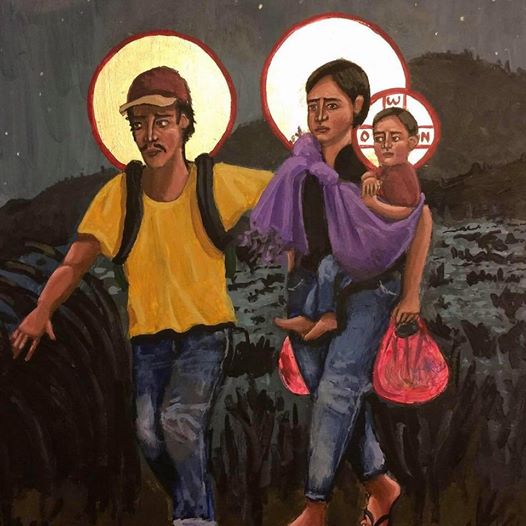

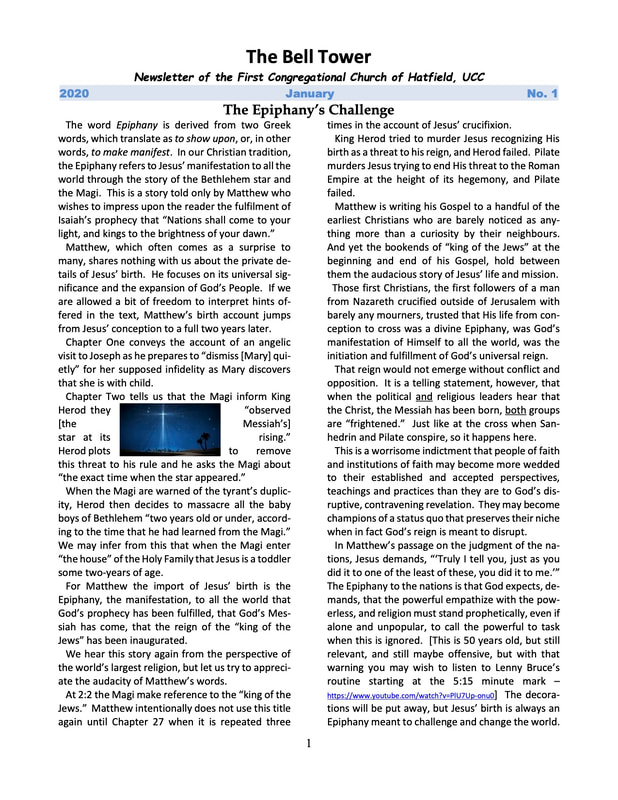
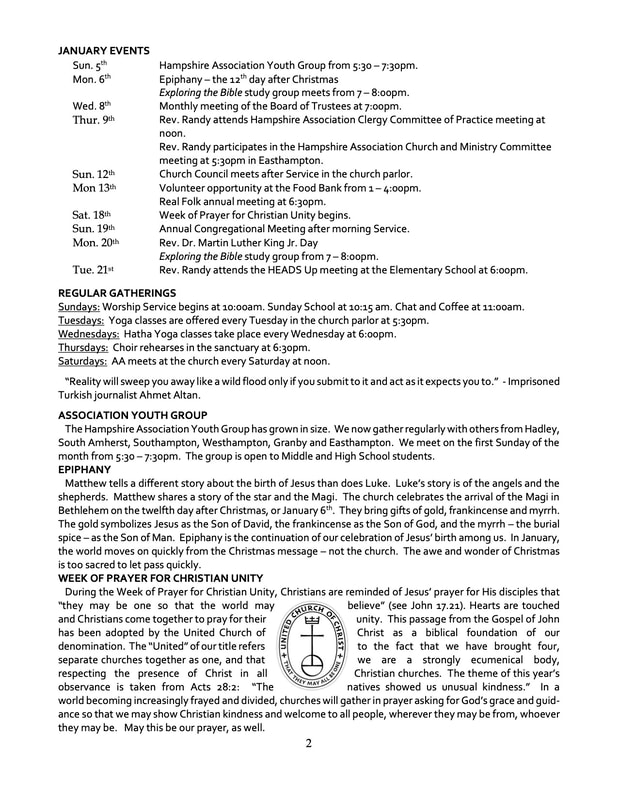
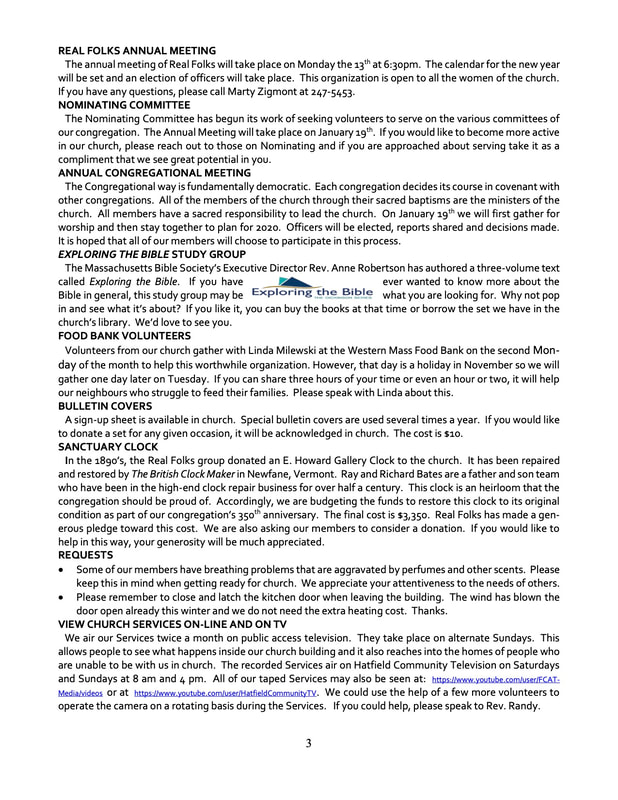
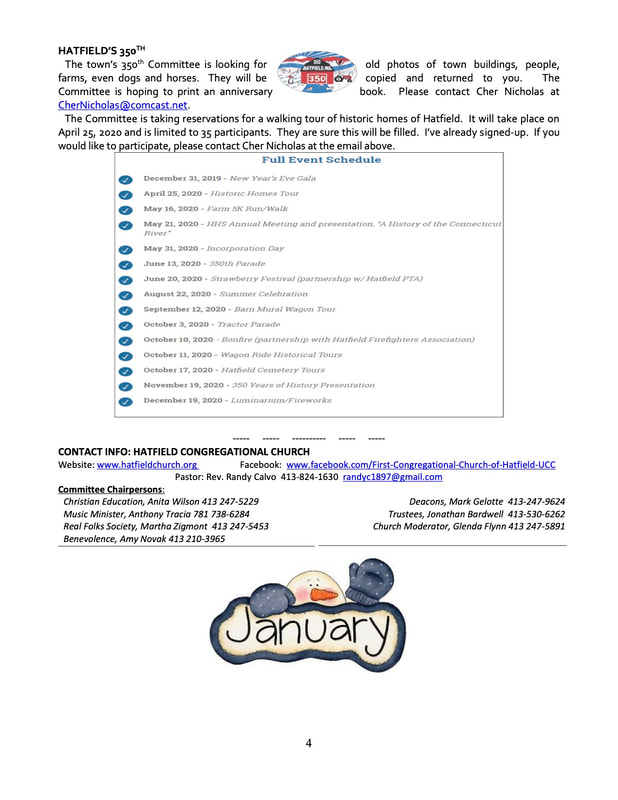
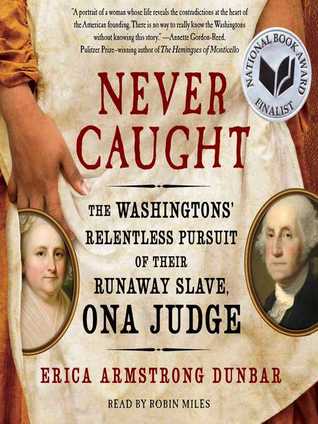
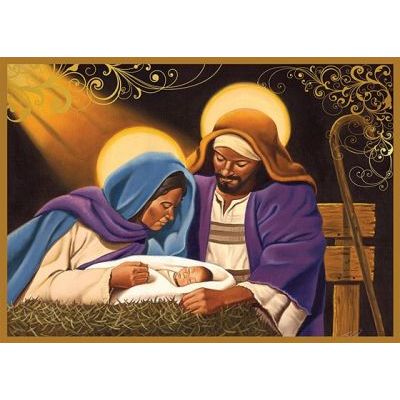
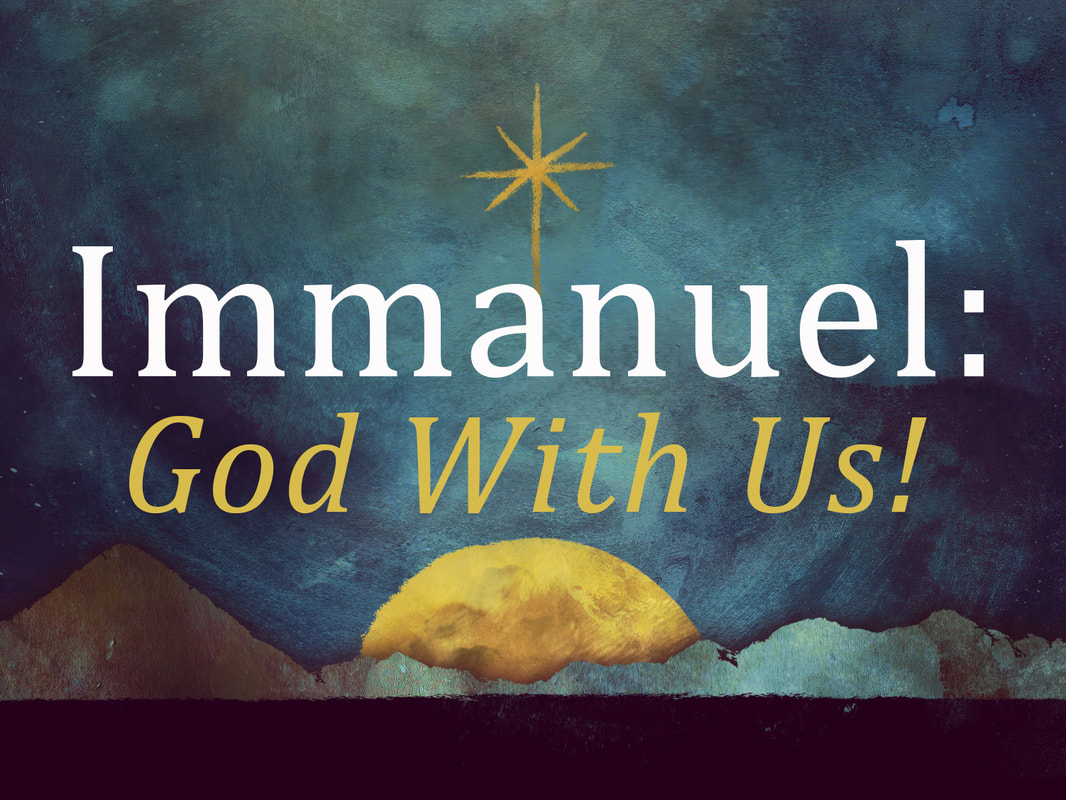

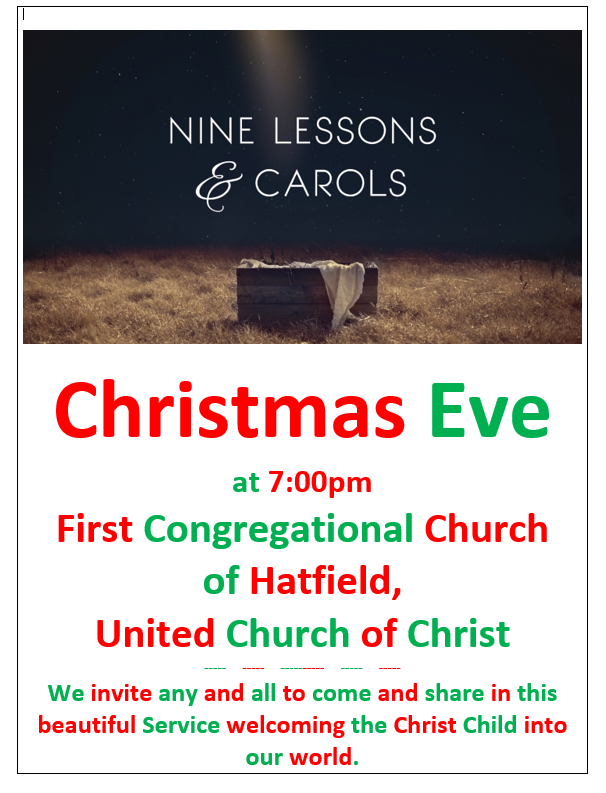
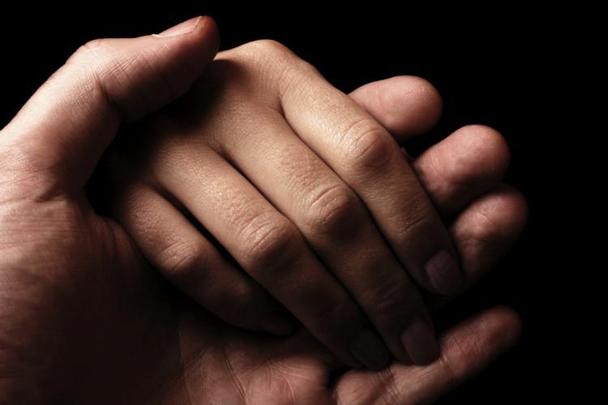
 RSS Feed
RSS Feed
